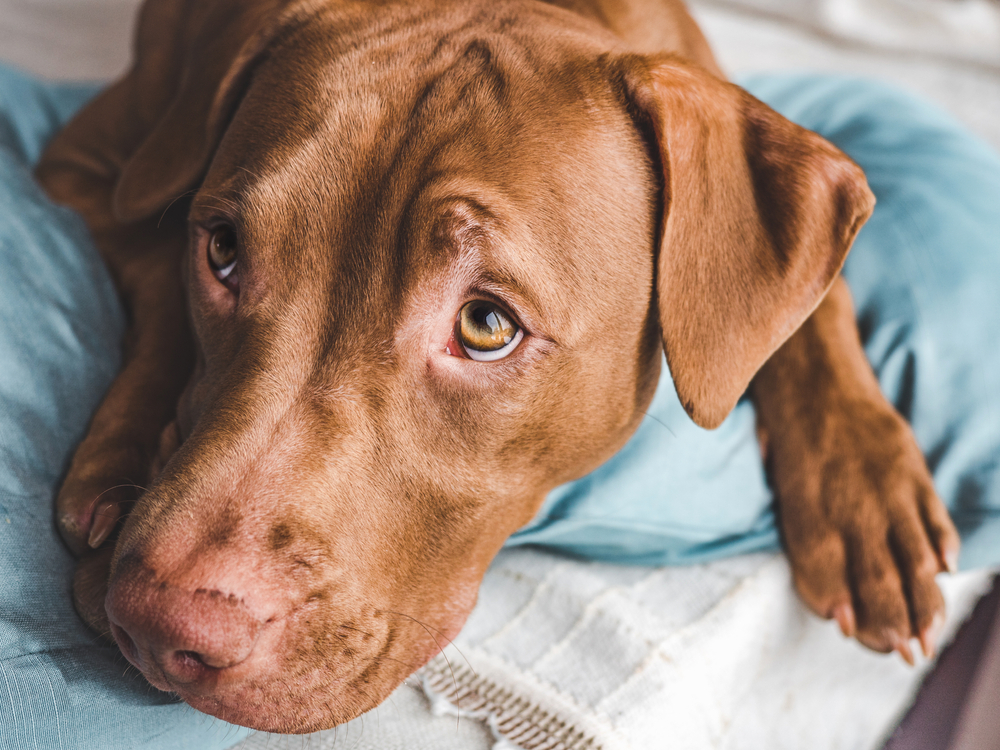Content Writing

Bringing home a new pit bull, whether it's a young puppy or a rescued adult, can be an exciting and life-changing experience. These loyal, affectionate, and intelligent dogs are known for their muscular build and strong will. However, there are several important factors to consider before bringing a pit bull into your home. In this article, we will explore 13 essential things you should know to ensure that both you and your new pit bull have a smooth and successful transition.

1. Understand the Pit Bull Breed
Pit bulls are a group of breeds that include the American Pit Bull Terrier, American Staffordshire Terrier, Staffordshire Bull Terrier, and other related breeds. They were originally bred for bull-baiting and dogfighting, but have since become popular as loving and loyal companion animals. Pit bulls are known for their intelligence, strength, and courage, but they can also be stubborn and require consistent training and socialization.
2. Be Prepared for Breed-Specific Legislation and Insurance Challenges
Some cities and counties have breed-specific legislation (BSL) that restricts or bans the ownership of pit bulls. Before bringing a pit bull into your home, research local laws and potential restrictions in your area. Additionally, some home insurance companies may not cover pit bulls or may charge higher premiums. Be prepared to face potential challenges in finding insurance coverage for your home and your dog.
3. Choose the Right Pit Bull for Your Lifestyle
Before adopting or purchasing a pit bull, consider your lifestyle and living situation. Pit bulls require regular exercise and mental stimulation to stay healthy and happy. If you have a busy schedule or a sedentary lifestyle, you may want to consider a more low-energy breed. Additionally, think about whether you prefer a puppy or an adult dog. Puppies require more time, patience, and training, while adult dogs may come with their own unique histories and quirks.
4. Be Prepared for Health Issues
Pit bulls are generally healthy dogs, but they can be prone to certain health problems, such as hip dysplasia, allergies, and heart disease. Regular check-ups, a healthy diet, and maintaining a healthy weight can help prevent some health issues, but it's important to be aware of potential problems and to budget for unexpected veterinary expenses.
5. Pet Insurance
Given the potential health issues that pit bulls can face, it's worth considering pet insurance to help cover unexpected veterinary expenses. Research different pet insurance providers and plans to find one that best suits your needs and budget.
Tip: This free tool lets you compare pet insurance prices across all the major carriers.
6. Regular Exercise and Mental Stimulation
Pit bulls are active dogs that require regular exercise to stay healthy and happy. Daily walks, playtime, and training sessions will help keep your pit bull physically and mentally stimulated. Be prepared to dedicate time each day to meet your pit bull's exercise and mental stimulation needs.
7. Socialization and Training
Socializing your pit bull with other dogs and people from a young age will help them become well-adjusted and confident adults. Enroll in a puppy socialization class or obedience training to help your pit bull learn basic commands and manners. Positive reinforcement training methods are most effective with this breed. As a pit bull owner, it's especially important to have a well-trained and well-behaved dog to help counteract the negative stereotypes often associated with the breed.
8. Grooming Needs
Regular brushing will help keep their coats healthy and minimize shedding. Additionally, pit bulls should have their nails trimmed regularly, their ears cleaned to prevent infection, and their teeth brushed to maintain good oral health.
9. Create a Secure and Comfortable Environment
Pit bulls are strong and agile dogs that may attempt to explore their environment or escape from an unsecured yard. Ensure your home and yard are secure to prevent your pit bull from getting into dangerous situations. Check for gaps in fences, secure any openings, and provide a safe outdoor space for your pit bull to enjoy.
10. Be Prepared to Be an Advocate for Your Pit Bull
Due to negative stereotypes and misinformation about pit bulls, you may face challenges and prejudices from neighbors, landlords, or others in your community. Be prepared to educate others about the breed and demonstrate that your pit bull is a well-trained and loving member of your family. Joining local pit bull advocacy groups can also provide support and resources for responsible pit bull ownership.
11. Dog Training
Investing in professional dog training for your pit bull can be an invaluable tool in building a strong bond and ensuring a well-behaved dog. Look for trainers who specialize in working with pit bulls or who have experience with strong, powerful breeds. Be sure to choose a trainer who uses positive reinforcement methods.
Check out the Best 7 Online Dog Training Programs here.
12. Be Patient and Consistent
Bringing home a new pit bull, whether a puppy or a rescue, requires patience and consistency. Allow your pit bull time to adjust to its new environment and provide plenty of love, attention, and positive reinforcement to help them feel comfortable and secure.
13. Make Sure These Products Are On Your Shopping List!
Bringing home a new pit bull can be overwhelming, so we compiled a comprehensive list of every product you'll need for your new pit bull here.
FAQ for First-Time Pit Bull Owners
Q: How long do pit bulls live?
A: Pit bulls typically have a lifespan of 12-14 years, with some living even longer with proper care and attention to their health.
Q: Are pit bulls good with children?
A: Pit bulls can be excellent with children when properly socialized and trained. However, it's important to teach children how to interact with dogs safely and respectfully and to always supervise interactions between children and dogs.
Q: Are pit bulls aggressive?
A: Pit bulls, like any breed, can exhibit aggressive behaviors if not properly socialized, trained, or managed. However, pit bulls are generally known for their loyalty, affection, and strong bonds with their families. Responsible ownership, socialization, and training are key factors in preventing aggression in any dog breed.
Q: Can pit bulls live in apartments?
A: Pit bulls can adapt to apartment living as long as their exercise and mental stimulation needs are met. However, some landlords or apartment communities may have breed restrictions that prohibit pit bulls, so it's important to research potential housing restrictions before adopting or purchasing a pit bull.
Q: What is the best food for pit bulls?
A: The best food for pit bulls is a high-quality, age-appropriate dog food that meets their specific nutritional needs. Consult with your veterinarian to determine the most suitable diet for your individual pit bull.






